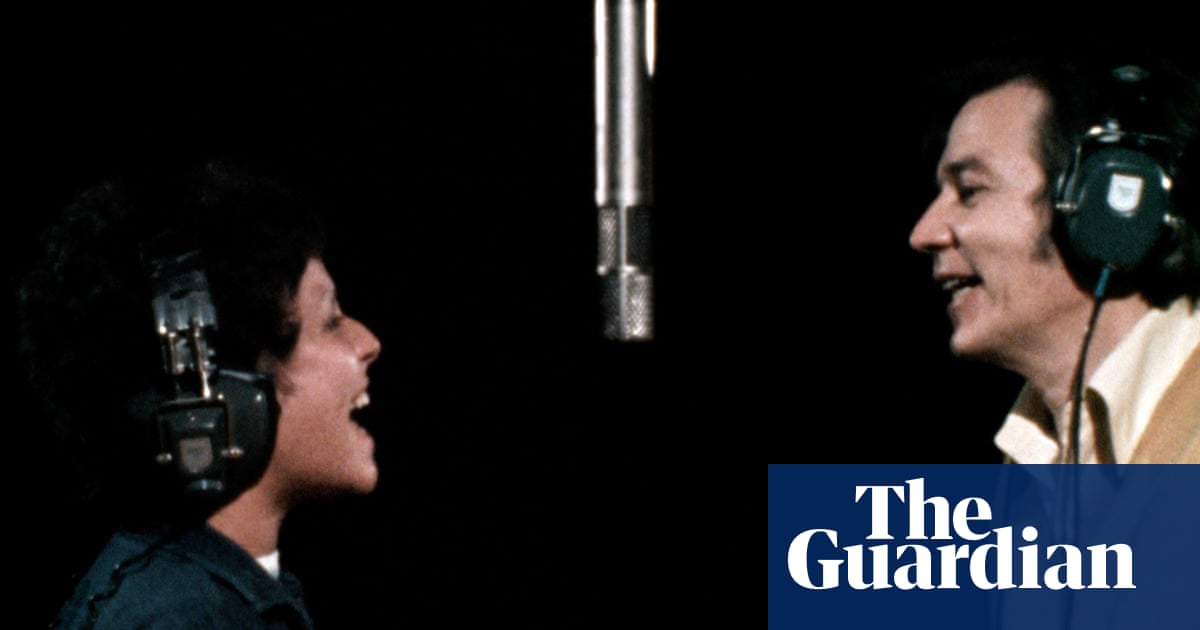
They were two of Brazil’s biggest stars – the singer Elis Regina and the bossa nova trailblazer Tom Jobim – and they had come together in California hoping to make music history.
“It’s not every day Brazil’s greatest singer records with Brazil’s greatest composer,” Elis Regina’s music producer son, João Marcello Bôscoli, said of the now legendary encounter nearly 50 years ago, in the winter of 1974.
Their mission was to make an album – Elis & Tom – in which the 28-year-old vocalist offered her singular take on the work of a Rio-born songsmith whose catchy bossa nova hits, such as The Girl from Ipanema, had conquered the world.
But just days after Elis Regina arrived in Los Angeles, where 47-year-old Jobim lived on Sunset Boulevard, the project came within a whisker of collapsing after a clash of personalities, styles and ideas that has remained largely hidden until now.
“She called me and said she was coming home,” said Roberto de Oliveira, Elis Regina’s then manager.
“She was really worked up and angry, swearing and complaining about Tom … I told her: ‘For the love [of God] – wait, I’m coming,’” remembered Oliveira, who raced to São Paulo’s airport hoping to extinguish “the fire”.
The story of how Elis & Tom – today considered one of Brazil’s best-ever records – was nearly never made is the subject of a new documentary, directed by Oliveira, that uses previously unseen 16mm footage to take fans inside the studio where the drama played out.
Bôscoli said the album had almost become the musical equivalent of Stanley Kubrick’s unfinished Napoleon biopic. “They call that the greatest film that was never made and for me this was almost the greatest album never made.”
The tale begins two years before Elis Regina and Jobim convened in California, at the height of Brazil’s brutal 1964-1985 military dictatorship.
A decade into her career, Elis Regina Carvalho Costa, who fans simply call Elis, was one of her country’s top artists, famed for her sparkling personality and soul-stirring voice. But progressive fans and intellectuals were scandalized when, in 1972, she sang the national anthem at an army sporting event.
“She was confused with being a supporter of the military regime … Everyone turned their back on her,” said Oliveira, who hoped making an album with Jobim would help recover some of the singer’s lost prestige.
In February 1974 Elis flew to LA to choose the repertoire and record but the project immediately ran into trouble.
Oliveira said Elis’s husband and arranger, the pianist César Camargo Mariano, and Jobim found themselves at loggerheads because of their dramatically different musical styles.
Jobim was known for his sophisticated, minimalist tracks and imagined Elis & Tom as a largely acoustic affair. Mariano had worked with Wilson Simonal, a singer famed for his funky upbeat sound, and hoped to use electric guitars and keyboards – an idea Jobim disliked.
Jobim and Elis also seemed to be singing from different hymn sheets. Bôscoli said his mother liked bossa nova, the soothing, jazzy genre Jobim introduced to the world with Frank Sinatra’s help. “But it wasn’t really her thing. She said a few times that anybody could sing this kind of music.”
“A singer with the qualities and characteristics she had – this vocal power – doesn’t want to sing softly and slowly,” the singer’s son added.
Nor was Jobim convinced Elis was the best interpreter for his work. “I think perhaps Tom thought that her temperament when she sang didn’t fit with the kind of music he made and … perhaps thought her voice might distract from the song,” Bôscoli said.
To make matters worse, Bôscoli suspected Jobim’s wry, playful personality reminded his mother of his father, the composer Ronaldo Bôscoli, from whom she had recently separated. “I think this ended up turning up the temperature too.”
After 18 days waiting for Jobim and Mariano to find common ground, an exasperated Elis Regina called Oliveira to announce her departure. “She said [Jobim] was crazy. She was really upset he didn’t want César to do the arrangements. The atmosphere was awful.”
“[When I got to LA] her bags were already packed. Things were really ugly,” added Oliveira who somehow managed to change her mind.
The rest is musical history. Jobim and Mariano overcame their differences, fusing their distinct styles to produce what Bôscoli called “one of the world’s great albums”. Elis and Jobim also bonded, their unique partnership captured in Oliveira’s spine-tingling footage of studio duets.
Oliveira called his film an homage to a masterpiece – a 14-track treasure containing classics such as Águas de Março (Waters of March), Chovendo na roseira (Raining on the Rosebush) and Só Tinha de Ser com Você.
The film was also a celebration of Elis Regina’s remarkable but troubled life – which ended prematurely in 1982 – during which Oliveira said she battled to overcome “every imaginable kind of harassment” in the profoundly chauvinist music industry.
The industry’s misogyny was such that Elis Regina’s own label wanted to give the album a different name.
“There was a fight. The record company wanted to call it ‘Tom & Elis’,” said Oliveira, arguing that the “mishaps and conflicts” were part of what had made the record so special.
“It wasn’t all perfectly planned-out … But had it been it would have been like artificial intelligence – and it isn’t. It’s non-artificial intelligence which absorbs human reactions and that’s what makes art beautiful.”
Bôscoli agreed the brush with musical disaster had helped make Elis & Tom the triumph it was.
“A work of artistic genius is normally the daughter of bad weather,” he said. “Without conflict there’s no cinema. Without conflict there is no life.”












